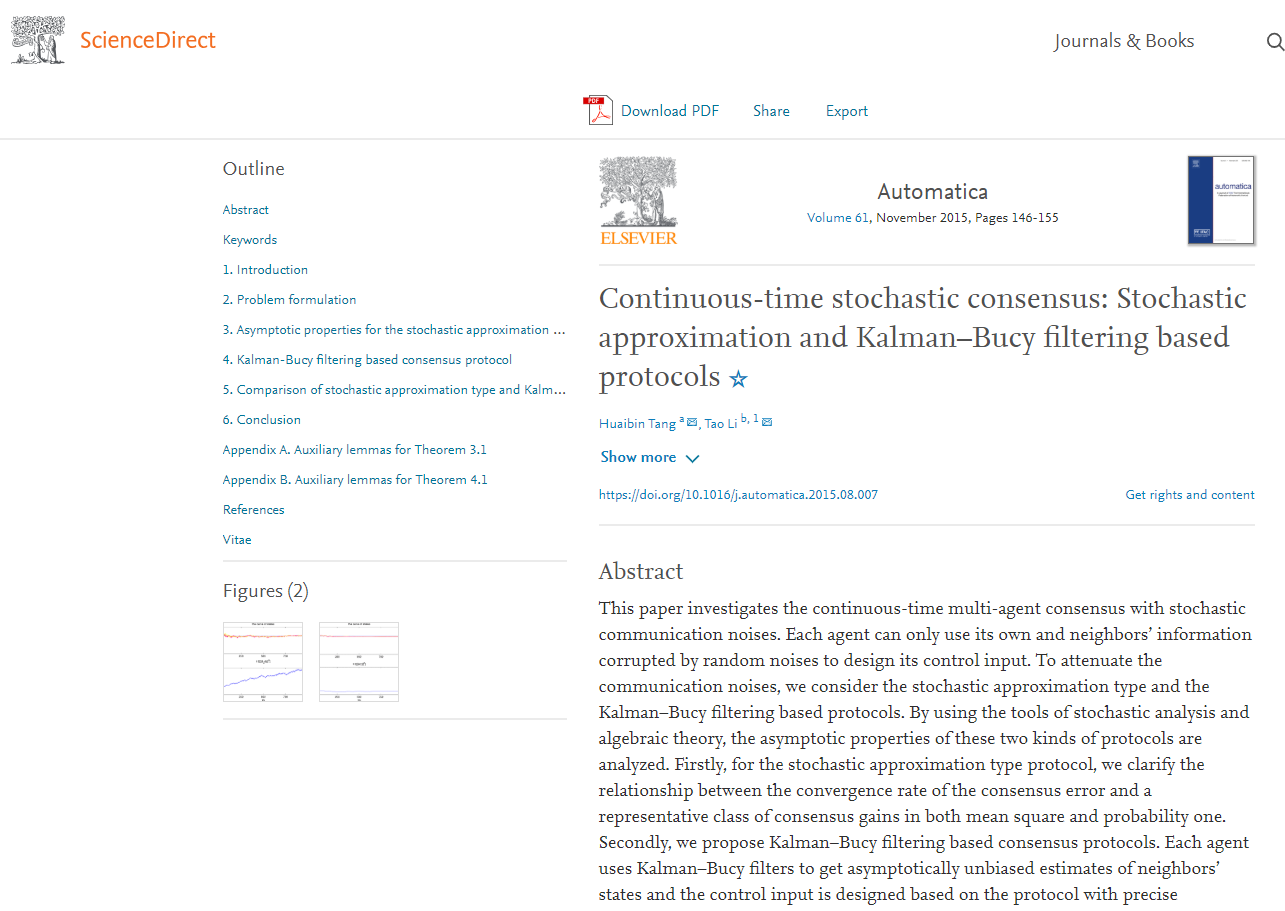
The consensus problem, which is one of the most fundamental topics in the distributed coordination, has been widely studied in the system and control community. We investigates the continuous-time multi-agent consensus with stochastic communication noises. Each agent can only use its own and neighbors’ information corrupted by random noises to design its control input. To attenuate the communication noises, we consider the stochastic approximation type and the Kalman–Bucy filtering based protocols. By using the tools of stochastic analysis and algebraic theory, the asymptotic properties of these two kinds of protocols are analyzed. The superiority of the Kalman–Bucy filtering based protocol over the stochastic approximate type protocol is studied both theoretically and numerically.